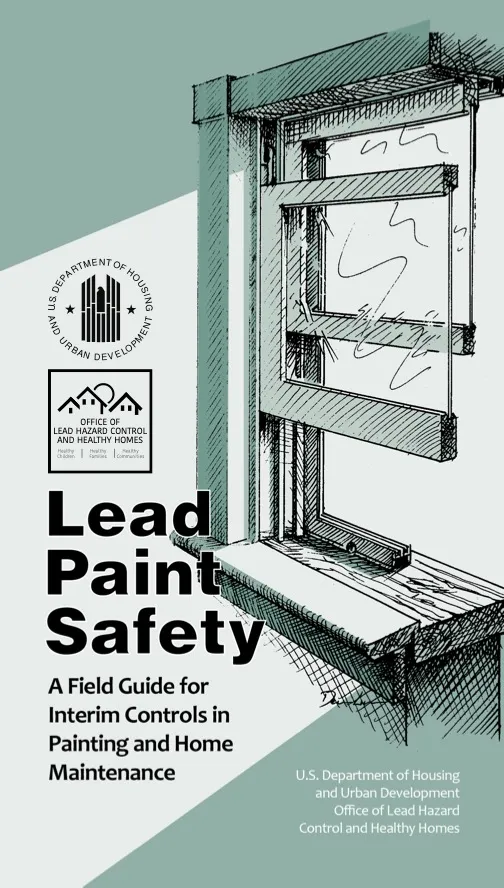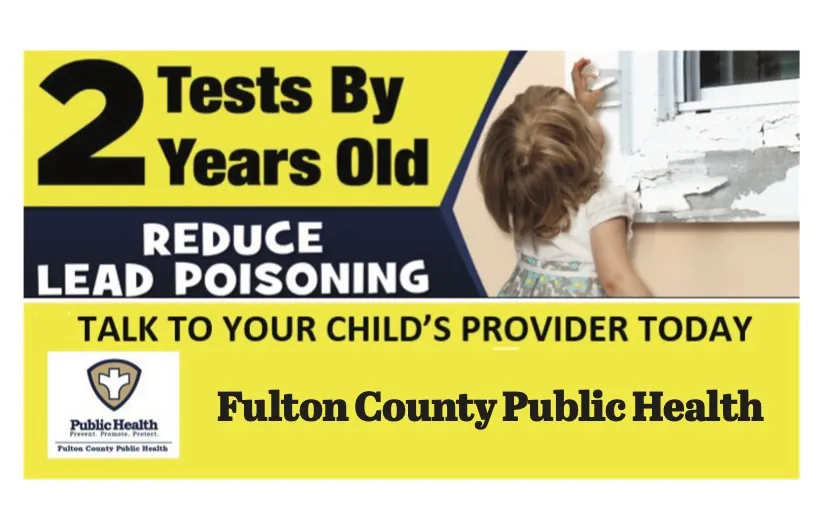

LEAD PROGRAM
Lead poisoning is a danger for every baby, child, pregnant woman, and fetus.
Lead paint was commonly used in houses built before 1978. Children living in these homes are, therefore, at a higher risk. Cracking, peeling paint chips and dust from opening and closing windows are the most common exposure sources.
Elevated lead levels can result in developmental delays or brain damage. Proper wet cleaning methods to reduce lead dust, frequent handwashing, reducing lead hazards and exposures, healthy diets, and other measures can reduce the risk of lead absorption and poisoning.
Talk to your child’s healthcare provider today about testing your child at ages 1 and 2. Results are sent to Fulton County Public Health for follow-up and risk reduction education.
Lead Risk Reduction Measures.
Clean window sills and wells, other woodwork and floors using a wet method (mop or wet wipes) that include heavy duty household cleaner. Disposable cloths are preferred. If using washable rags wash separate from other items.
Block shipping and peeling paint areas off with furniture, and cover peeling paint with duct tape or contact paper until able to repair and/or seal.
Use a vacuum with a HEPA filter when vacuuming. Contact Fulton County Public Health at 518-736-5720 to borrow a HEPA vacuum.
Plant ground cover near the outside of houses built before 1978 and houses built near major highways as the soil can contain lead.
Ensure children do not have access to peeling paint chips and cannot access surfaces they can shew or suck on. Supervise children closely.
Cribs and playpens should be moved away from areas with chipping and peeling paint.
Wash children’s hands, toys and pacifiers frequently.
Make bottles of formula and cook with lead free water (bottled water or water from a faucet that has been flushed by letting it run for more than 1 minute before using). Never use hot tap water to make bottles.
Keep a child’s belly full. Frequent small meals high in iron, calcium and vitamin C are best. More lead is absorbed when a stomach is empty.
Do not serve food in pottery or ceramics meant for decoration. Do not store food in open cans.
Occupations and hobbies that involve lead work (stained glass, ammunitions, mechanics, fishing sinkers, etc.) can contaminate cloths and shoes. Protect cars and homes by changing and washing contaminated clothing immediately.



